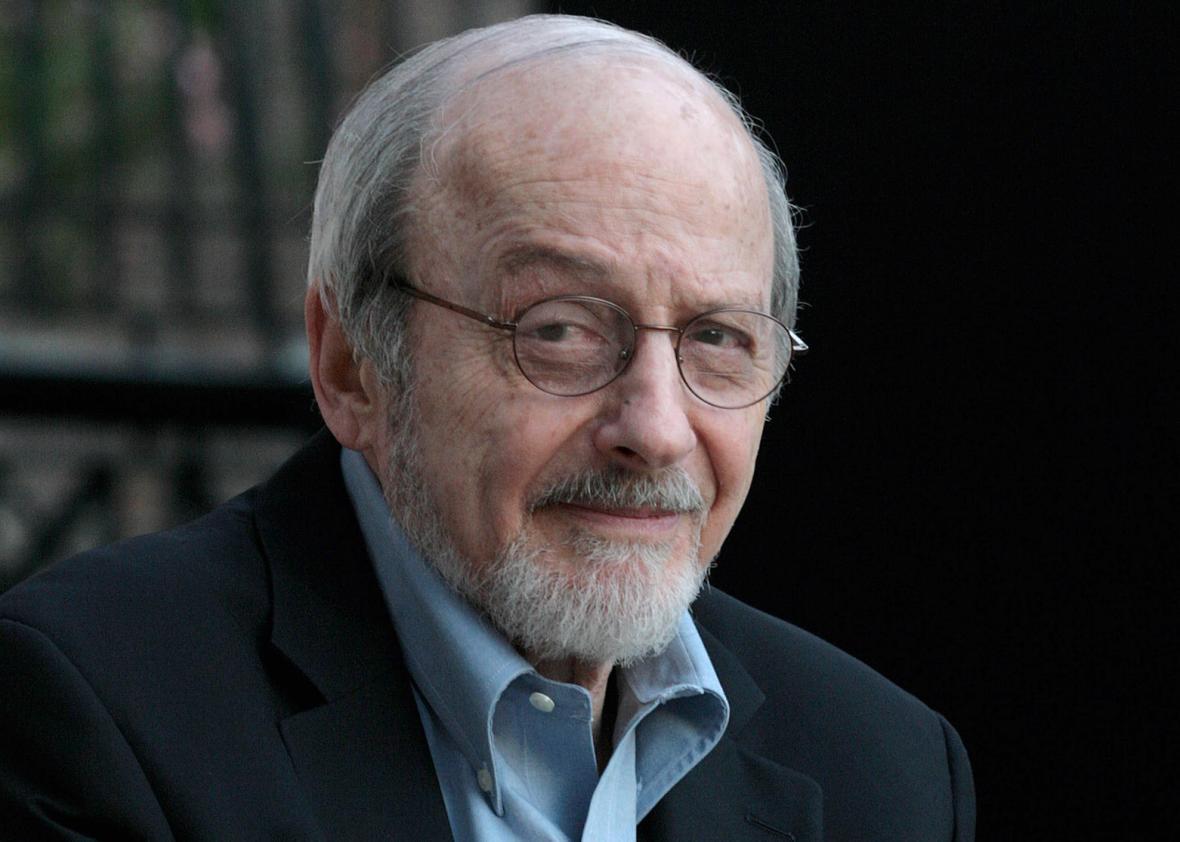E.L. Doctorow, who died on Tuesday at 84, was a former book editor who quit his job as publisher at the esteemed Dial Press in 1969 to concentrate on his own writing. His first three novels were well-received, but the novel that made his career was 1975’s Ragtime. In Doctorow’s wonderful Paris Review interview, published in 1986, he tells George Plimpton the origin of that novel’s remarkable opening chapter—the one you likely still remember, with its amused omniscient voice, which begins with the description of a three-story house in New Rochelle and perfectly encapsulates a certain blinkered view of the turn of the century:
Teddy Roosevelt was President. The population customarily gathered in great numbers either out of doors for parades, public concerts, fish fries, political picnics, social outings, or indoors in meeting halls, vaudeville theatres, operas, ballrooms. There seemed to be no entertainment that did not involve great swarms of people. Trains and steamers and trolleys moved them from one place to another. That was the style, that was the way people lived. Women were stouter then. They visited the fleet carrying white parasols. Everyone wore white in summer. Tennis racquets were hefty and the racquet faces elliptical. There was a lot of sexual fainting. There were no Negroes. There were no immigrants.
How did Doctorow being writing the novel? Out of desperation, facing a blank page, he turned to a blank wall:
It’s a good reminder that books, even great books, don’t always come from divine inspiration. Sometimes they just come from writing something, anything.
Read J.D. Connors’ 2005 Slate review of The March and overview of Doctorow’s methods of historical fiction.
